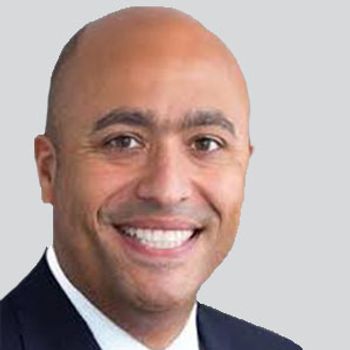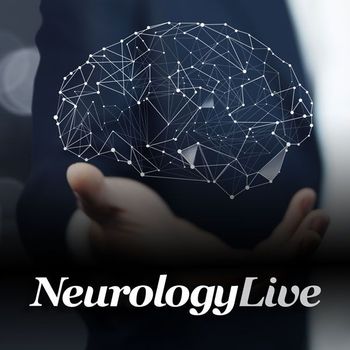
The RAISE trial will examine the proportion of patients with refractory status epilepticus who experience status cessation within 30 minutes of initiation of intravenous ganaxolone.

Marco Meglio, Assistant Managing Editor for NeurologyLive, has been with the team since October 2019. Follow him on Twitter @marcomeglio1 or email him at [email protected]

The RAISE trial will examine the proportion of patients with refractory status epilepticus who experience status cessation within 30 minutes of initiation of intravenous ganaxolone.

Observation of pain freedom at 30 minutes was more accurate than the observation of relief at 30 minutes in predicting pain freedom at 2 hours.

Earlier AD diagnosis with the AlzoSure assay could potentially make it feasible to initiate disease-modifying therapies much earlier in the disease process.

Gocovri is now the only therapy to be approved in the US to treat both off episodes and dyskinesia in patients with Parkinson disease.

Barbara Karp, MD, and Sharon Meropol, MD, discuss the recently launched NeuroCOVID databank from the NIH, which will track neurologic symptoms associated with COVID-19.

RACE, G-FAST, and CG-FAST were among the best performing prehospital stroke scales out of 8 scales tested and approached the performance of the clinician-assessed NIHSS.

Treatment with low-dose protocol of rituximab is sufficient to maintain suppression of inflammatory disease activity in most patients with relapsing-remitting multiple sclerosis.

The basis of the approval for peginterferon beta-1a was from a phase 1 crossover study that showed the drug’s bioequivalence to subcutaneous injection.

The researchers noted that the recovery model can use all available serially assessed data in a flexible way, creating a prediction at any desired moment poststroke, stand-alone, or linked with an electronic health record system.

Clinically relevant scores of 32 and 44 on the Fugl-Meyer Motor Score were documented in 2 patients who received NSI-566.

Specific health-related quality of life measures in physical activities, well-being, cognition, and social activities were improved among those who underwent the laser ablation procedure.

Relapse, followed by medication history and age, was among the highest exclusion rates for MS trials across different disease-modifying therapies.

Creative Medical Technology’s ImmCelz contrasts other stem cell-based approaches by utilizing stem cells outside of the body to reprogram the patient’s own immune cells.

The director of the Massachusetts General Hospital ALS Care Center sat down to discuss ‘The Data is Here’ campaign from Answer ALS, the world’s largest open-sourced ALS data portal.

Preclinical studies have shown that the homeoprotein hEN1 is essential for the survival and maintenance of spinal cord alpha motor neurons that innervates muscles throughout the body.

Brian Wainger, MD, PhD, assistant professor of neurology and anesthesiology, Harvard Medical School, discussed the recently published phase 2 trial a repurposed epilepsy drug in patients with ALS.

No significant between-group differences were detected in symptomatic intracerebral hemorrhage or 90-day mortality.

After winning FDA approval in October 2020, the new expanded indication includes adolescents aged 12 and older with episodic or chronic migraine.

The asymmetry of mediotemporal atrophy and a lesser impact of APOE4 and TDP-43 on the integrity of memory circuitry may have constituted preservation in primary progressive aphasia.

If approved, INP104 would be the first and only delivery system to explore the vascular-rich upper nasal space as a therapeutically viable treatment pathway.

Any intracerebral hemorrhage was observed less frequently in the mechanical thrombectomy alone group than in the combined group.

The average number of inpatient claims per year was higher for patients with SMA than their matched non-SMA patients, with respiratory illness the most common reason for an inpatient admission among all patients with SMA.

Hippocampal-sparing and limbic-predominant atrophy were also associated with incident dementia, with faster cognitive decline in the limbic predominant atrophy group.

The Evelyn F. McKnight Neurocognitive Scholar at the University of Miami Miller School of Medicine detailed his study on the correlations between sleep and cognitive decline in middle-aged Hispanics.

The calculation of fVPA based on this equation resulted in a misinterpretation in 40% of measurements with around 75% of them overestimating the actual measured fVPA.

Having a blood test available could help eliminate wait time in the emergency room and could reduce the number of unnecessary CT scans by up to 40%, according to Abbott, the test’s developer.

People who were genetically predisposed to smoking behaviors were at a 63% greater risk for subarachnoid hemorrhage.

The findings showed that 64% of EEG education programs did not utilize objective measures to assess EEG milestones.

The ability of the ABC/2 method to correctly identify patients with an infarct volume below a pre-defined cut-point proved to be very high for various cut-points.

The assistant professor of neurology and anesthesiology at Harvard Medical School discussed the landscape of ALS treatments and his outlook on how the future might evolve.